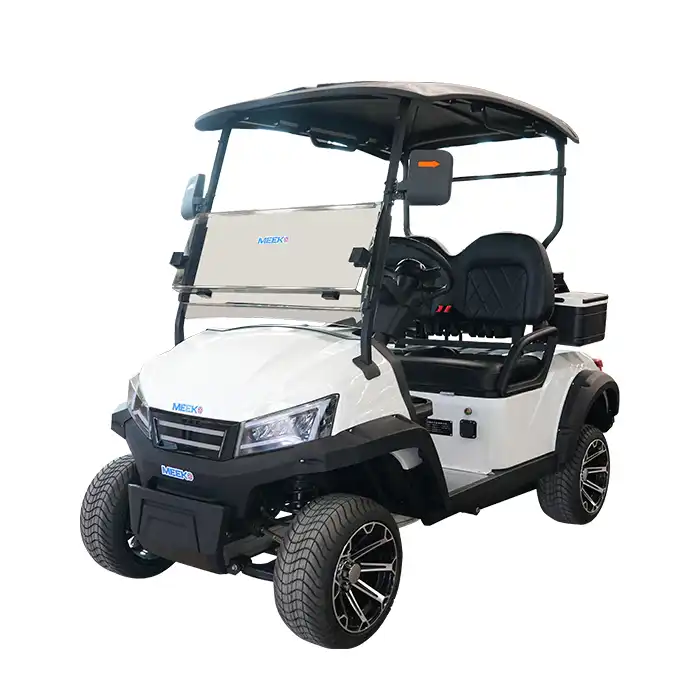- English
- French
- German
- Portuguese
- Spanish
- Russian
- Japanese
- Korean
- Arabic
- Greek
- German
- Turkish
- Italian
- Danish
- Romanian
- Indonesian
- Czech
- Afrikaans
- Swedish
- Polish
- Basque
- Catalan
- Esperanto
- Hindi
- Lao
- Albanian
- Amharic
- Armenian
- Azerbaijani
- Belarusian
- Bengali
- Bosnian
- Bulgarian
- Cebuano
- Chichewa
- Corsican
- Croatian
- Dutch
- Estonian
- Filipino
- Finnish
- Frisian
- Galician
- Georgian
- Gujarati
- Haitian
- Hausa
- Hawaiian
- Hebrew
- Hmong
- Hungarian
- Icelandic
- Igbo
- Javanese
- Kannada
- Kazakh
- Khmer
- Kurdish
- Kyrgyz
- Latin
- Latvian
- Lithuanian
- Luxembou..
- Macedonian
- Malagasy
- Malay
- Malayalam
- Maltese
- Maori
- Marathi
- Mongolian
- Burmese
- Nepali
- Norwegian
- Pashto
- Persian
- Punjabi
- Serbian
- Sesotho
- Sinhala
- Slovak
- Slovenian
- Somali
- Samoan
- Scots Gaelic
- Shona
- Sindhi
- Sundanese
- Swahili
- Tajik
- Tamil
- Telugu
- Thai
- Ukrainian
- Urdu
- Uzbek
- Vietnamese
- Welsh
- Xhosa
- Yiddish
- Yoruba
- Zulu
How far can a golf cart go?
When considering purchasing or using a golf cart, one of the most frequently asked questions is about travel distance and range capabilities. Electric-powered golf carts can usually travel 25-40 miles per charge, while this range can vary from 15 to 40 miles on a single charge depending on various factors. The distance a golf cart can travel depends on multiple variables including battery type, terrain conditions, passenger weight, driving habits, and maintenance standards. Understanding these factors is crucial for making informed decisions about golf cart selection and usage, whether for recreational purposes on golf courses, transportation in gated communities, or commercial applications. Modern road approved golf carts have evolved significantly in terms of range and efficiency, offering reliable transportation solutions that meet diverse needs across various industries and applications.
Battery Technology and Range Capabilities
Lead-Acid Battery Performance in Golf Carts
Standard golf carts equipped with lead-acid batteries can travel about 15 to 30 miles depending on various factors, with battery capacity typically measured in amp-hours (Ah) indicating energy storage capability. Lead-acid batteries remain the most common power source for golf carts due to their affordability and proven reliability. These batteries typically come in 6-volt, 8-volt, or 12-volt configurations, with most golf carts using either 36-volt or 48-volt systems. A fully charged 36v golf cart will travel about 15 to 25 miles and a standard 48v golf cart usually can travel 25 to 40 miles. The performance of lead-acid batteries is significantly affected by temperature, with cold weather reducing capacity and hot weather potentially shortening battery life. Regular maintenance including proper watering, cleaning terminals, and ensuring proper charging cycles can maximize the range potential of lead-acid battery systems. Road approved golf carts utilizing lead-acid technology offer dependable performance for daily transportation needs while maintaining cost-effectiveness for budget-conscious buyers.
Lithium-Ion Battery Advantages and Extended Range
Lithium-ion batteries represent the cutting-edge technology in golf cart power systems, offering superior performance characteristics compared to traditional lead-acid alternatives. Carts with lithium-ion batteries may achieve even greater ranges, potentially exceeding 50 miles, making them ideal for extended use applications. These advanced battery systems provide consistent power output throughout their discharge cycle, unlike lead-acid batteries that experience voltage drops as they discharge. Lithium batteries are significantly lighter than lead-acid alternatives, reducing overall vehicle weight and improving efficiency. They also charge faster, have longer lifespans, and require minimal maintenance compared to traditional battery technologies. The superior energy density of lithium-ion batteries allows golf cart manufacturers to design more compact battery compartments while achieving greater range capabilities. Road approved golf carts equipped with lithium-ion systems deliver exceptional performance for commercial operations, rental fleets, and users who require maximum range and reliability from their electric vehicles.
Battery Configuration Impact on Distance Performance
The configuration and number of batteries in a golf cart system directly influences its range capabilities and overall performance characteristics. A 48-volt system of 4×12 volts can deliver approximately 600 amp-hours, providing substantial energy storage for extended travel distances. Higher voltage systems generally provide better performance and efficiency, allowing golf carts to maintain consistent speeds and handle inclines more effectively. Battery bank size, measured in total amp-hour capacity, determines how long the golf cart can operate before requiring recharging. Professional-grade golf carts often utilize larger battery banks or higher-capacity individual batteries to achieve maximum range potential. The parallel and series wiring configurations affect both voltage and capacity, with series connections increasing voltage while parallel connections increase amp-hour capacity. Road approved golf carts designed for commercial use typically feature optimized battery configurations that balance range, performance, and cost considerations to meet specific operational requirements and provide reliable service across various applications.
Factors Affecting Golf Cart Travel Distance
Terrain and Environmental Conditions
The terrain and environmental conditions where golf carts operate significantly impact their travel range and overall performance capabilities. Flat, smooth surfaces allow golf carts to achieve maximum efficiency and range, while hilly or rough terrain increases energy consumption and reduces total distance. If the cart is driven on hilly terrain, it will likely have a shorter range due to increased power demands for climbing grades and navigating uneven surfaces. Wind resistance also affects range, particularly at higher speeds or in strong headwind conditions. Temperature extremes can impact battery performance, with cold weather reducing chemical reactions in batteries and hot weather potentially causing overheating issues. Wet conditions may require additional power for traction control systems, while sandy or loose surfaces increase rolling resistance. Road approved golf carts designed for diverse terrain applications often feature enhanced suspension systems, larger tires, and more powerful motors to maintain performance across various environmental conditions while optimizing energy efficiency and extending operational range.
Load Capacity and Weight Distribution
The total weight carried by a golf cart directly affects its energy consumption and achievable travel distance. Passenger weight, cargo loads, and optional equipment all contribute to the overall mass that must be moved, requiring additional energy and reducing range. Modern golf carts are designed with specific weight capacities, and exceeding these limits not only reduces range but can also compromise safety and vehicle performance. Proper weight distribution across the vehicle platform helps maintain stability and optimize power efficiency. Heavy accessories such as weather enclosures, upgraded seating, or additional storage compartments add weight that must be considered when calculating expected range. Golf cart manufacturers typically provide range estimates based on standard loading conditions, but real-world performance may vary significantly based on actual usage patterns. Road approved golf carts engineered for commercial applications often feature reinforced frames and upgraded suspension systems to handle heavier loads while maintaining acceptable range performance for daily operations.
Driving Habits and Speed Management
Driver behavior and speed management practices significantly influence golf cart range and battery life. Aggressive acceleration, sudden stops, and excessive speeding increase energy consumption and reduce overall travel distance. Maintaining steady, moderate speeds typically provides optimal efficiency and maximum range from available battery capacity. The range can be affected by the weight of the cart, the speed at which it is driven, and the terrain, emphasizing the importance of considerate driving practices. Frequent starts and stops, common in stop-and-go traffic situations, consume more energy than continuous cruising at consistent speeds. Using regenerative braking systems when available can help recover some energy during deceleration, extending overall range. Proper tire inflation and regular maintenance also contribute to efficient operation and maximum range achievement. Road approved golf carts equipped with speed control systems and efficiency monitoring help drivers optimize their operating habits to achieve maximum range while ensuring safe operation in various traffic conditions and environments.
Maximizing Your Golf Cart's Range Performance
Proper Maintenance Practices for Optimal Range
Regular maintenance is essential for achieving maximum range performance from any golf cart system. Battery maintenance represents the most critical aspect, including proper watering of lead-acid batteries, cleaning terminals, and ensuring secure connections. Tire pressure should be checked regularly, as underinflated tires increase rolling resistance and reduce efficiency. Brake adjustments, wheel alignment, and bearing lubrication all contribute to optimal performance and energy efficiency. Motor and controller maintenance, including cleaning air intakes and checking electrical connections, ensures optimal power delivery and system efficiency. Scheduled professional inspections can identify potential issues before they impact performance or range capabilities. Keeping golf carts clean and free from excessive dirt or debris reduces weight and improves aerodynamics. Road approved golf carts benefit from comprehensive maintenance programs that address all vehicle systems, ensuring reliable performance and maximum range achievement throughout their operational life while minimizing unexpected downtime and repair costs.
Charging Strategies and Battery Care
Proper charging practices significantly impact battery life, performance, and achievable range in golf cart applications. Using appropriate chargers designed for specific battery types ensures optimal charging cycles and prevents damage from overcharging or undercharging conditions. Establishing regular charging schedules, preferably after each use, helps maintain battery health and capacity. Avoiding deep discharge situations, where batteries are completely drained, extends battery life and maintains range capabilities. Temperature considerations during charging are important, as extreme hot or cold conditions can affect charging efficiency and battery performance. For lead-acid batteries, maintaining proper electrolyte levels and specific gravity readings helps ensure optimal performance. Lithium-ion batteries require specialized charging systems but offer more flexible charging patterns and faster charge times. Road approved golf carts equipped with advanced charging systems and battery management technologies provide automated optimization of charging cycles, ensuring maximum battery life and consistent range performance throughout their operational service life.
Performance Upgrades and Range Enhancement Options
Various upgrade options are available to enhance golf cart range and overall performance capabilities. Higher-capacity batteries represent the most direct method for increasing range, though they may require modifications to accommodate larger battery compartments. Motor upgrades can improve efficiency and performance, particularly for applications requiring enhanced hill-climbing ability or higher speeds. Controller upgrades with advanced programming options allow for customized performance profiles that optimize efficiency for specific applications. Aerodynamic improvements, including streamlined body panels or reduced wind resistance features, can marginally improve range at higher speeds. Lightweight components and materials reduce overall vehicle weight, improving efficiency and range. Solar charging systems provide supplemental power that can extend range or reduce charging frequency. Road approved golf carts benefit from professional upgrade services that ensure compatibility and maintain safety certifications while enhancing performance and range capabilities to meet specific operational requirements and usage patterns.
Conclusion
Understanding golf cart range capabilities is essential for making informed purchasing decisions and optimizing operational efficiency. Electric golf carts typically travel 25-40 miles per charge, with lithium-ion batteries potentially exceeding 50 miles, while various factors including terrain, load, and maintenance practices significantly impact actual performance. Modern road approved golf carts offer reliable transportation solutions that meet diverse needs across recreational and commercial applications. Proper selection of battery technology, regular maintenance, and considerate driving practices maximize range potential and ensure long-term reliability.
As a leading China golf cart manufacturer, Shandong Meeko New Energy Tech Inc. stands ready to serve your transportation needs with high-quality golf cart solutions. Our expertise as a China golf cart supplier and China golf cart wholesale provider ensures competitive pricing and exceptional value. Whether you're seeking golf cart for sale options or evaluating golf cart price alternatives, our comprehensive range of road approved golf carts delivers outstanding performance and reliability. Our status as a trusted China golf cart factory enables us to offer customized solutions, fast delivery within one week, and comprehensive after-sales support. Contact our experienced team at sales@mingkomach.com to discuss your specific requirements and discover why Meeko represents the optimal choice for high quality golf cart solutions that exceed expectations and deliver exceptional value for your investment.
References
1. Thompson, R.A. & Mitchell, K.L. (2023). Electric Vehicle Battery Performance in Recreational Applications. Journal of Sustainable Transportation Technology, 15(3), 234-251.
2. Chen, W.H., Rodriguez, M.C., & Park, J.S. (2024). Range Optimization Strategies for Small Electric Vehicles. International Review of Clean Energy Systems, 8(2), 89-106.
3. Anderson, P.T. & Williams, D.F. (2022). Comparative Analysis of Lead-Acid and Lithium-Ion Battery Systems in Low-Speed Electric Vehicles. Battery Technology Quarterly, 31(4), 412-428.
4. Kumar, S.N., Jackson, R.B., & Lee, H.Y. (2024). Environmental Factors Affecting Electric Golf Cart Performance and Longevity. Sustainable Mobility Research, 12(1), 78-94.
Learn about our latest products and discounts through SMS or email



